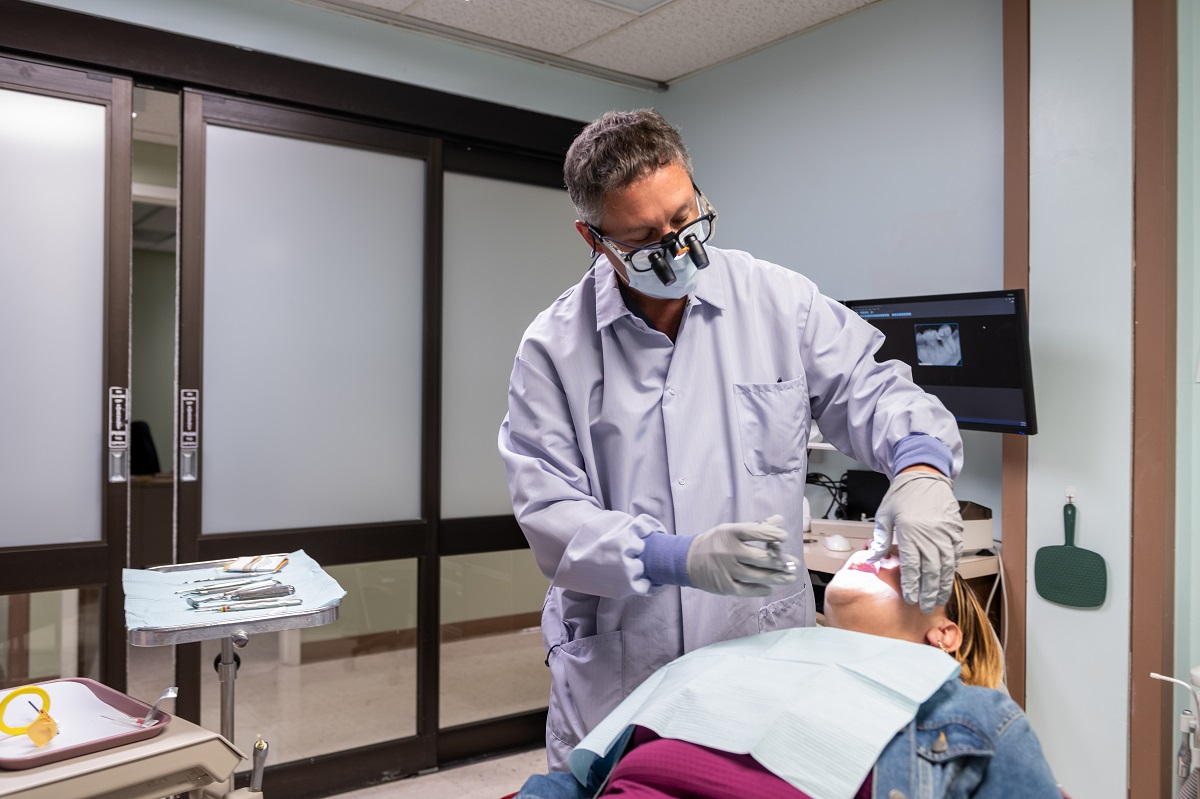The Medical Minute: Tooth trouble linked to heart trouble

Could a trip to the dentist save you from a trip to the heart surgeon?
Medical science has a lot to say about how cardiovascular health is influenced by what you put in your mouth. Fatty and sugary foods, cigarettes and alcohol have appeared on most-wanted posters in heart doctor offices for decades now.
But what about the mouth itself?
“There is a connection indeed,” said Dr. Andrew Waxler, a cardiologist at Penn State Health Medical Group ― Berks Cardiology. In fact, people with untreated tooth infections are 2.7 times more likely to have cardiovascular problems like coronary artery disease than people with healthy mouths, according to a 2016 study in the Journal of Dental Research.
But exactly what the connection is between oral health and heart health is still a mystery.
The heart valve connection
Scientists have known about the link between oral health and one specific kind of heart issue for a long time, Waxler said.
“We’ve known for years that people who have infections in their mouth ― like cavities and other problems ― are at higher risk of getting what’s called endocarditis,” he said. “That’s a fancy way of saying infection of the heart valve.”
Those valves are the tiny spigots in your heart that help keep the blood flowing between its chambers without backflow. An infection can cause a host of symptoms, such as shortness of breath and chest pain ― and it’s potentially fatal. Mild cases of endocarditis can be treated with intravenous antibiotics, but surgery may be needed in some cases.
And you can get it from a toothache?
“People can get strep bacteria from the mouth that goes into the blood stream and goes down and latches onto the valves and causes an infection,” Waxler said.
Can dental problems cause a heart attack?
More recent to medical science is the discovery that people with dental issues have a significantly higher risk of developing problems not just with their heart valves but with their arteries. A link can be made between infections in the mouth and a hardening of the highway system that carries oxygen-rich blood out to your vital organs.
Hardening in the arteries is when there’s a buildup of fatty substances inside the walls of these blood vessels, which leads to a blockage and ultimately a heart attack.
Incidentally, the material blocking the arteries is referred to as plaque – but it’s a completely different kind of substance than the kind that coats your teeth and causes cavities, Waxler said. Eating a lot of sugary foods can still lead to heart problems, but not that way. The No. 1 risk factor for heart disease is diabetes, he said.
So what’s the connection between tooth decay and arterial blockages? Doctors aren’t quite sure yet, but they have theories, Waxler said.
Theory one: Bacteria The bacteria that infects the gums and teeth – often it’s strep, but it can be other varieties – can get into the blood stream and the walls of the arteries.
Autopsies of some people who have died from heart attacks have revealed DNA from different varieties of oral bacteria in the walls of blood vessels.
Theory two: Inflammation. When people have a chronic infection in, say, the gums, associated chronic inflammations can pop up elsewhere.
During the past 30 years or so, research has shown that people with higher levels of inflammation in their bodies are more likely to have heart attacks and strokes. The thinking is that when people have an infection in their mouth, they can set off an inflammatory response in the body. In responding to it, the immune system can become overly aggressive, and the hardening of the arteries is the result of an irritation caused by that response.
“This actually makes more sense to me than the bacteria,” Waxler said.
Theory three: It’s incidental. People who don’t take care of their teeth are more likely to have bad habits that lead to heart disease. In this case, any arterial problems have nothing to do with bacteria or inflammation. The connection between dental health and heart health is that people with severe dental problems also might smoke or eat foods that are bad for them.
What you can do
“If you decide you’re going to go to the dentist every three months and decide that you’re going to have the cleanest mouth in the world, does that help your heart?” Waxler asked. “I don’t know that anyone really has the answer to that.”
What doctors are sure of is the big five. Diabetes, smoking, high cholesterol, high blood pressure and a family history of heart disease are all risk factors for heart disease. If you’re looking to prevent heart disease, you have quite a few more likely culprits to think about before you worry about your teeth.
What would Waxler say to a patient concerned about whether their teeth might one day take a bite out of their heart?
“I’d tell them go see your dentist at least once a year, ideally every six months,” Waxler said. “Brush your teeth. Floss your teeth. There is a direct correlation. We don’t know why. But it can’t hurt, right?”
You can listen to Waxler discuss health issues like this one on the Berks County Medical Society’s radio program Health Talk on WEEU-AM 830. The show airs at 6 p.m. the first Wednesday of every month.
Related content:
- The Medical Minute: Detecting the subtle signs of heart disease in women
- The Medical Minute: Ensuring heart valve health
The Medical Minute is a weekly health news feature produced by Penn State Health. Articles feature the expertise of faculty, physicians and staff, and are designed to offer timely, relevant health information of interest to a broad audience.
If you're having trouble accessing this content, or would like it in another format, please email Penn State Health Marketing & Communications.
